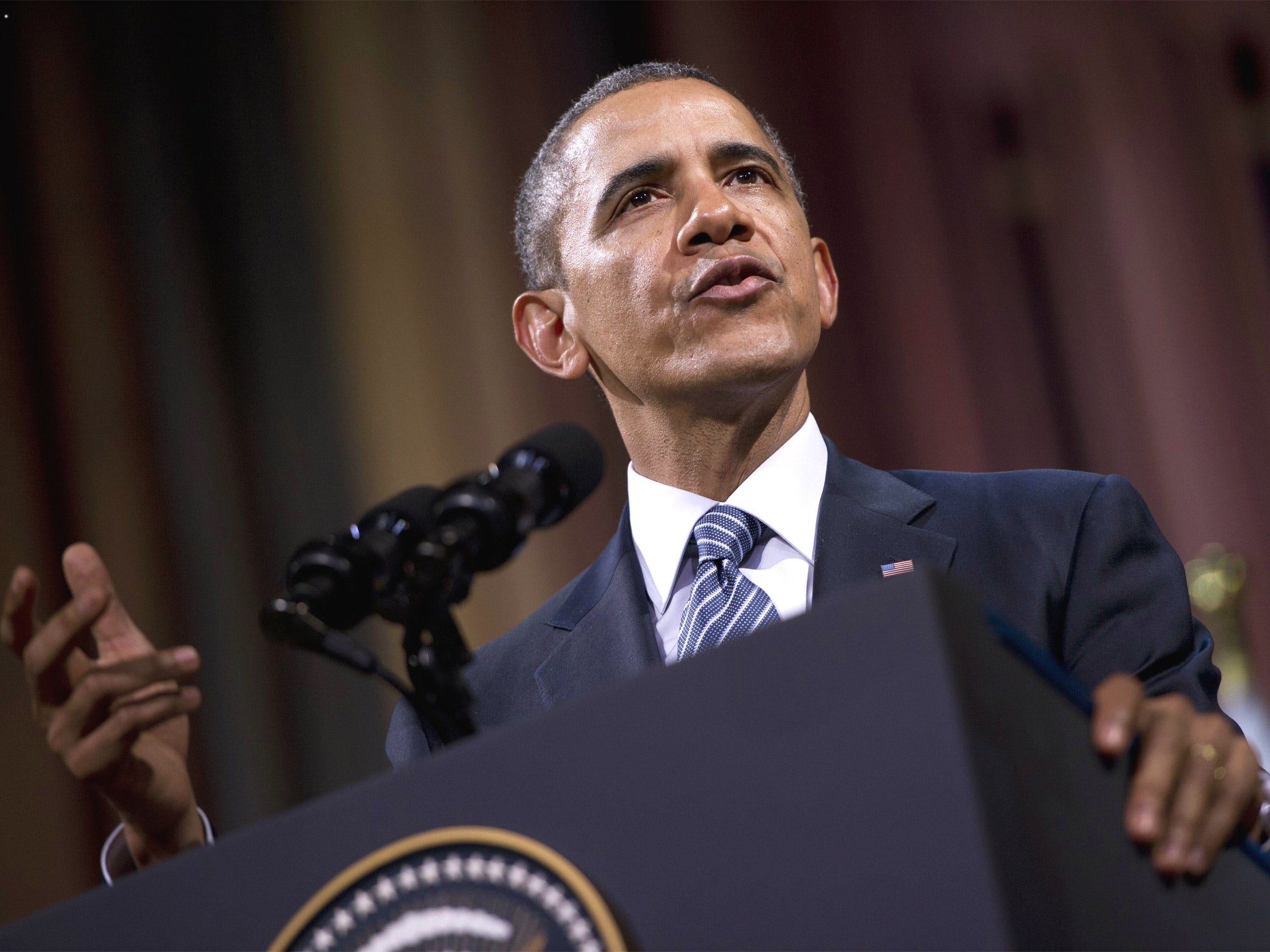My Week: Tax tourism is a flagship policy, and Obama is helping things along

There are several factors that have turned the cross-border mergers and acquisitions tap back on this year. A recovering world economy, boardroom confidence and cash piled high on balance sheets have all played a part. Over lunch this week, one senior corporate adviser pointed out another secret weapon in generating deal fees: Barack Obama.
Tax inversions of the type being proposed by drugs company AbbVie in its £27bn pursuit of FTSE 100 firm Shire are the talk of Wall Street. Whether it succeeds, AbbVie, which wants to move tax domicile to Britain but manage the combined company from Chicago, will not be the last to try.
President Obama, seeking to limit corporate tax avoidance, has made the matter all the more pressing. A proposed clamp-down on inversions that is going through the US Senate means that companies are dashing to find takeover targets in Britain before the loophole is closed.
No matter the strength of the pound: American firms moving here can save millions from a lower corporate tax rate and release billions in cash accrued overseas that would be taxed at 40 per cent on its return to home shores.
But consummating such transactions is harder than it looks. The merger of advertising firms Publicis and Omnicom collapsed and Pfizer fell short in its takeover of AstraZeneca. Both enlarged companies would have resided in the UK for tax purposes.
A presentation from the City law firm Slaughter and May compares the three most attractive destinations in Europe for so-called corporate migration: the UK, Ireland and the Netherlands.
The irony is that what appeals most about Britain is George Osborne's falling corporation tax rate and what appeals least are governance reforms championed by his Coalition partner, Vince Cable, that give shareholders a binding vote on boardroom pay.
There are other advantages, however, such as that Britain doesn't demand that these companies actually hold board meetings here, while Ireland and the Netherlands require some to take place locally.
It begs the question of what actually changes beyond a brass plate on the door? I suppose that some more cash rolling into Treasury coffers is accompanied by a shift in the centre of gravity for corporations that otherwise would have nothing to do with Britain. That might bring with it jobs.
How strange that Margaret Hodge and others have got in a lather about companies such as Google not paying their way. Yet the Government, including the Treasury Secretary Danny Alexander, who was banging the drum on Wall Street this week for more American investment in Britain, have made tax tourism a flagship policy - as long as companies are clear about the correct direction of travel.
Green energy has to be paid for by some means
Something doesn't add up in the energy industry. Just as the Big Six suppliers are being hauled in by the Competition and Markets Authority to probe whether they are acting anti-competitively, the renewables lobby are celebrating a green revolution.
It is true the Office for National Statistics data showing that a 43 per cent rise last year in the amount of electricity produced from wind, solar and hydro is something to celebrate. But it would be stretching things to suggest that keeping the lights on in Britain can be achieved without nuclear, gas and even some coal as part of the mix.
What has failed to be acknowledged by politicians and consumer champions stung by higher bills is that this revolution would not have begun were it not for all the environmental levies that Centrica, E.ON and others have been forced to charge customers for.
While the main energy providers have unsurprisingly been terrible at telling the complicated story of the link between wholesale and retail prices, they really should have done better on renewables. Can the consumer applauding a clean, green future for the country not see that it is being provided by the very companies they are encouraged to hate for hiking bills?
Wind power will be blowing for decades to come. The Crown Estate's annual report this week confirmed that shopping on Regent Street is still buoyant. But the Queen's property firm is also landlord to the energy companies developing offshore wind capacity.
Licensing profits were up 46 per cent last year to £15m and there are plans to increase generating capacity by 250 per cent by 2020. If only the Big Six could win a similar royal seal of approval.
The appeal of London? It may just be a matter of time
Lance Uggla might have floated his financial data company Markit on Nasdaq, but the Canadian was evangelical over breakfast about the appeal of running a business in London.
It could be the talent pool from which he has recruited hundreds of staff, some of whom became paper millionaires when the firm which crunches derivatives and bonds trading data and sells it to banking clients was valued at £2.8bn. It could be the burgeoning fintech (financial technology) scene which he watches carefully after buying up 26 firms for a collective £1.1bn since Markit started out in 2003.
Or it could be something as simple as the time zone, quite handy for anyone with global ambitions. Anyone who has ever tried to run an Asian credit portfolio from Toronto will understand that.
Subscribe to Independent Premium to bookmark this article
Want to bookmark your favourite articles and stories to read or reference later? Start your Independent Premium subscription today.

Join our commenting forum
Join thought-provoking conversations, follow other Independent readers and see their replies